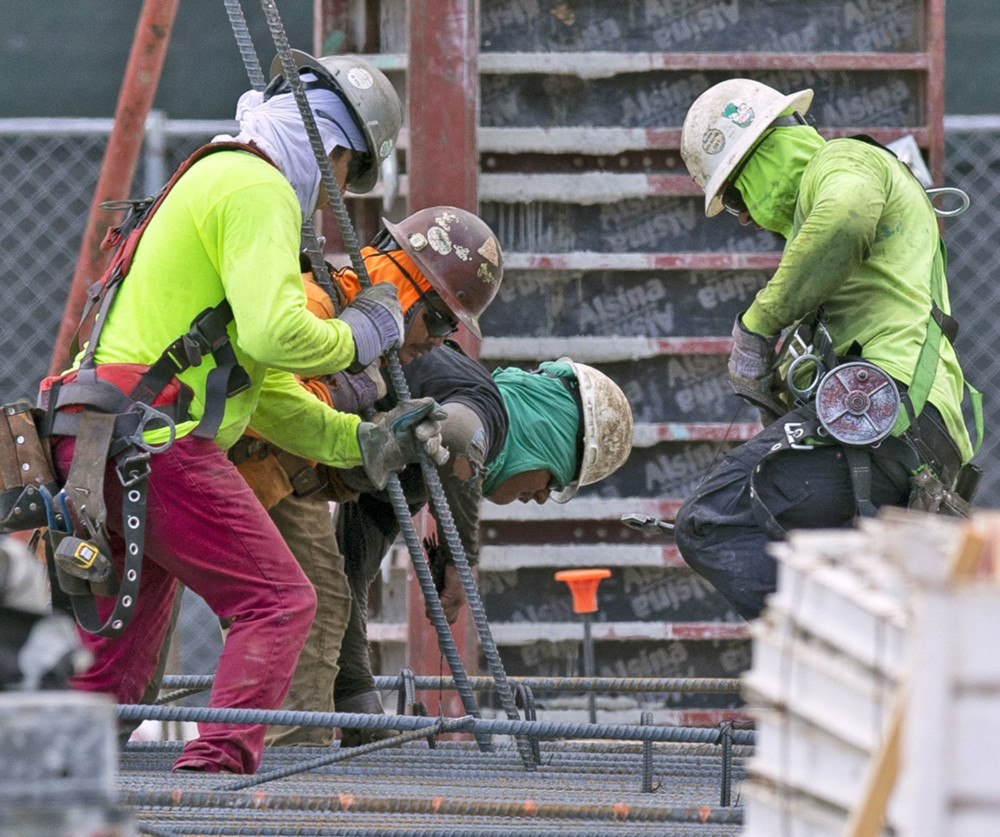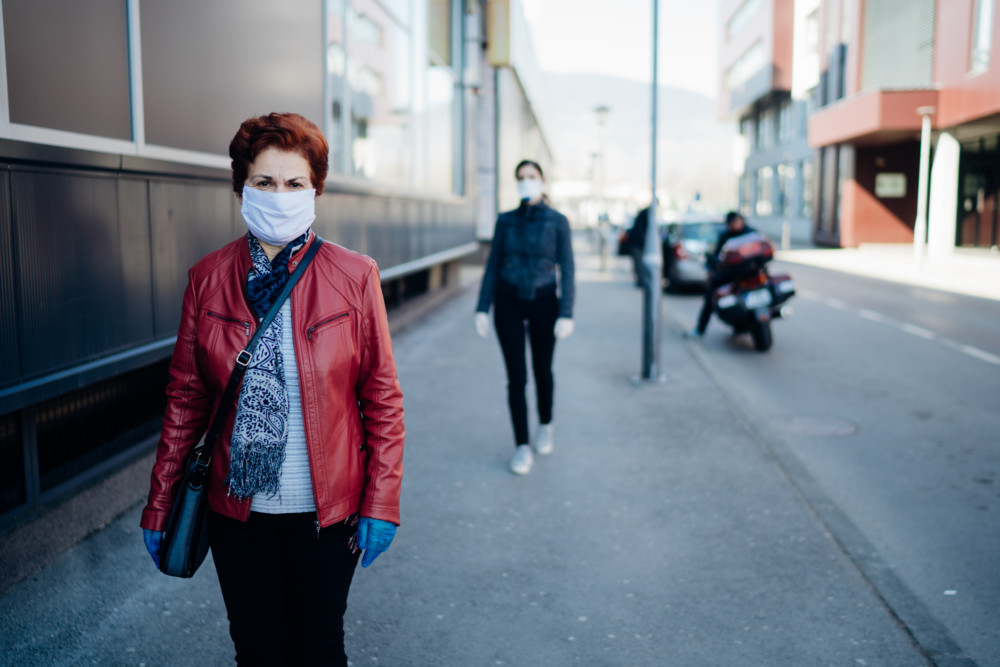By Elaine S. Povich
Stateline.org
WWR Article Summary (tl;dr) As Elaine Povich reports, the efforts to figure out who is and is not an essential worker during the shutdown “has been a confounding patchwork of rules that have left some workers befuddled and industry organizations scrambling for guidance.”
Stateline
Are construction workers essential? It depends.
The standards for what constitutes essential work under COVID-19 pandemic rules vary state to state, city to city, and, in some cases, hour to hour. Some orders change because of industry pressure; some change as the pandemic worsens; and some governors clarify earlier orders when confusion ensues.
The result has been a confounding patchwork of rules that have left some workers befuddled and industry organizations scrambling for guidance.
Governors and local officials face the difficult task of trying to balance public safety with the huge hit to the economy from shuttered businesses.
The federal government has a list of essential critical infrastructure, including jobs, industries and other services. Most states use it as a baseline, but within those broad guidelines, officials set rules and tailor directives to their state and local needs.
Construction goes on in several states; others stopped it, except for auxiliary hospitals and coronavirus testing sites. Some states allowed golf courses to stay open; some closed them. New Jersey’s links initially were open but now are shut.
Can flowers be delivered? Depends. In Pennsylvania, medical marijuana dispensaries are OK, but not liquor stores (except for beer).
In New York, Gov. Andrew Cuomo, a Democrat, declared construction projects essential. After an outcry from workers and bad publicity about luxury apartment construction continuing, he modified the plan.
“We’re closing down nonessential construction sites,” Cuomo told reporters last week. “Some construction is essential, right? To keep the place running. But nonessential construction is going to be stopped.”
In San Francisco, Mayor London Breed stopped nonessential construction, but California Gov. Gavin Newsom’s rules for statewide projects remain fuzzy. (Both are Democrats.) The governor allowed workers who “support the construction, operation, inspection, and maintenance of construction sites and construction projects (including housing construction).”
At least three states, New York, Pennsylvania and Washington, halted almost all construction. Local jurisdictions canceled work on some projects, according to the North American Building Trades Unions, which is keeping a tally.
The national building unions in a letter urged 55 state, tribal and territorial governments to keep construction going and critical infrastructure operational.
“We can do this safely. We can work spread apart,” said Robbie Hunter, president of the State Building and Construction Trades Council of California, adding that he had instructed workers not to labor in close quarters.
He said construction officials banned lunch carts where workers often congregate and many are checking workers’ temperature at sites.
“If there’s no work, there’s no paycheck,” he added. “We are doing a real balance. I don’t want any construction worker to carry anything home to their kids.”
But the hashtag #stopconstructionnow gained traction on Twitter and the Michigan Infrastructure & Transportation Association called on Michigan Gov. Gretchen Whitmer, a Democrat, to declare construction operations nonessential so workers could stay home.
Kim Kelly, a freelance writer and labor organizer based in New York, in an op-ed in the Washington Post, urged New Jersey Gov. Phil Murphy, a Democrat, to shut down nonessential construction so her father, a heavy machinery operator whom she did not name, could stay home.
Murphy did not respond to her, but his stay-at-home order did not include construction workers.
Industry pressure comes from many places:
A coalition of real estate groups called for property appraisals to be deemed essential, as part of an overall plea for real estate transactions to go on, noting in a letter that “only seven states so far have declared appraisals for real estate-related services as exempt from those restrictions.” Murphy declared one-on-one home showings OK, but not “open houses.”
There was confusion in New Mexico about a closure order that seemed to include gun shops. Gun stores were not on the list of essential businesses, but some stayed open anyway last week, the Santa Fe New Mexican reported. After several days of back-and-forth in several states, including a couple of lawsuits, the Trump administration issued guidance that gun stores could stay open.
In Houston, furniture stores were considered essential, and pressure mounted in Collin County in northern Texas to keep as many shops open as possible, the Texas Tribune said.
Even the status of recreational activities like golf is confusing, as shown by two tweets posted 19 minutes apart earlier this week by suburban Chicago Daily Herald reporter Jake Griffin.
The first said golf courses were open, relying on an interpretation of Democratic Gov. J.B. Pritzker’s orders by a consortium of golf organizations. The second asserted they were closed.
Illinois has, in fact, closed golf courses, but the two tweets illustrate how interpretations and rapidly changing situations have whipsawed businesses, workers and patrons.
Janeen Driscoll, director of brand communications at the U.S. Golf Association, which represents golf courses, said the latest reports from her members show that of the 33 states that have issued stay-at-home orders, nine of them shut golf courses.
The rest are open, in some form, with many golf courses calling for one-person-to-a-cart rules and new guidelines for players who don’t want to reach into a hole to retrieve a ball.
“By and large, the golf industry has focused on the well-being of the golf community,” she said. The group modified some rules to allow for players who may not want to touch a flagstick, for example, to play with the stick in the hole or to remove them altogether.
In Arizona, Republican Gov. Doug Ducey kept golf courses, a $4 billion industry in his state, open, drawing criticism from many mayors in his state who argued they are a health hazard. In the letter, the mayors said the order was “too broad,” and singled out payday lenders as well as golf courses.
Even if courses are closed, golf courses need to keep greens watered or they might have to replace them, at a significant cost, once the crisis is over.
“We do know that landscapes and golf course maintenance could easily be lumped together in state legislation where golf course owners are trying to support at least those golf facilities being maintained,” Driscoll said.
But landscaping rules also vary. In Massachusetts, for example, Republican Gov. Charlie Baker’s closure order allows landscaping businesses to stay open if they can operate remotely or on sites with “social distancing.”
Texas did not restrict landscapers, but the city of Austin ordered them to close. In Michigan, Whitmer singled out landscapers as a type of business that should not be open and threatened fines or rescinding business licenses for those who do not comply.
Dry cleaners and laundromats, once on the list for closure in many states, are now open, and considered essential “99% of the time,” according to Nora Nealis, executive director of the National Cleaners Association. Some initial orders listed laundromats as essential, she said, leading to confusion over dry cleaners.
“Sometimes when government officials who aren’t aware of those nuances create a category, what they have in their heads is obvious to them, but to somebody else it’s not obvious,” she said in a phone interview. “So they had to go back and revise the list a couple of days later and say ‘anything to do with clothing care.'”
But even for open dry cleaners, she said, business is down to about 10% of what it used to be. However, essential workers, such as cops and doctors, still need dry cleaning and laundry establishments to get their uniforms and shirts, which may have come into contact with the virus, cleaned and sanitized.
“Most of the states have figured out that if you are working, you need ’em,” she said.
___
Distributed by Tribune Content Agency, LLC.















































































































































































































































































































































































